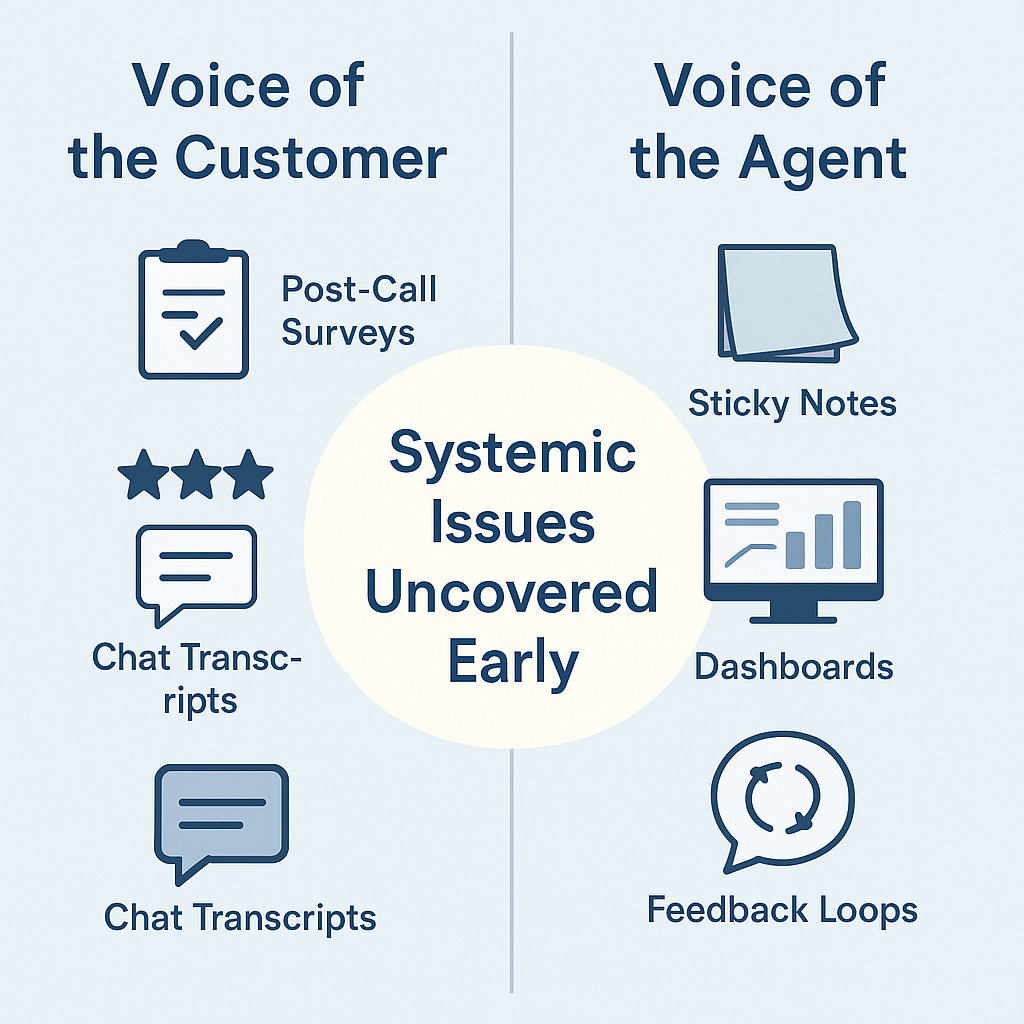Why Listening to Agents Improves Customer Experience
How agent feedback reveals systemic issues before they become CX problems
When organizations discuss “listening,” the focus often centers on the customer. Surveys, NPS, and social media monitoring are all important signals. However, companies often overlook the most immediate and insightful feedback loop they have: their own agents.
Agents are the front line of the customer journey. They hear the confusion, frustration, and repetitive friction points long before they show up in a customer satisfaction metric. If you want to improve customer experience in a meaningful and sustainable way, start by listening to your agents.
Why Agent Feedback Matters
Agents experience the patterns customers can’t articulate
A customer might be annoyed that they had to repeat their account number three times, but an agent can tell you why that happens and how often it derails calls.They bridge the gap between process and reality
Policies, scripts, and systems look clean in a PowerPoint. Agents are the ones who deal with the messy edge cases that expose where processes fail in practice.They see friction across multiple journeys
One customer only experiences their own problem. Agents see the same problem across hundreds of customers each week. That perspective is gold.
Use Cases: Where Listening Pays Off
Broken Integrations: An agent flags that 30% of callers can’t be authenticated in the IVR and end up in live queues. Fixing that prevents thousands of wasted minutes for customers and staff alike.
Policy Confusion: Agents consistently note that customers don’t understand the return policy. That’s not just a training issue; it’s a signal that communication (website, receipts, emails) needs clarity.
Process Gaps: A graduate services team notices students often call after completing a form online because they don’t get confirmation. That tiny system gap creates avoidable anxiety and unnecessary call volume.
Tech Debt Exposure: Agents repeatedly have to switch between four systems to resolve a billing issue. Their feedback points to the need for CRM integration, not just “agent training.”
The Payoff
Proactive CX fixes – By listening to agents, you surface and resolve issues before they generate churn or poor survey results.
Efficiency gains – Every broken process an agent points out is an opportunity to reduce handle time, rework, and repeat calls.
Employee engagement – Agents who feel heard are more motivated. That’s not fluff; engaged agents create better customer interactions.
Smarter investment decisions – Instead of chasing shiny tools, you invest in solving the pain agents actually face, which aligns tech spend directly with CX outcomes.
How to Make Agent Feedback Actionable
Formalize Voice of the Agent (VoA): Don’t just rely on hallway chatter. Create structured channels like weekly huddles, feedback loops in your CRM, or survey forms tailored for agents.
Pair with Voice of the Customer (VoC): Compare customer survey results with agent insights. If customers say “slow resolution,” agents will often explain why.
Close the Loop: Share back what’s being changed because of agent input. Otherwise, feedback dies in a black hole, and trust erodes.
The Bottom Line
Customers tell you where it hurts. Agents tell you why it hurts. If you’re serious about improving customer experience, treat your agents as a strategic listening post, not just a cost center.
The organizations that win in CX aren’t just the ones with the best tools or the most surveys; they’re the ones that listen where the signals are strongest. And more often than not, those signals are coming from the headset of an agent who’s already solved the customer’s problem a dozen times today.



